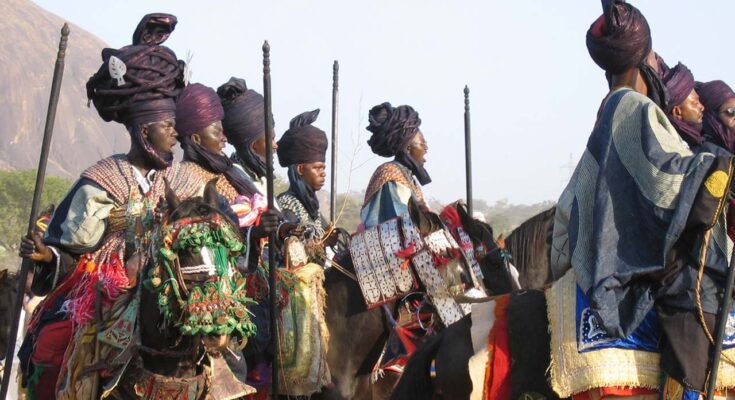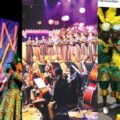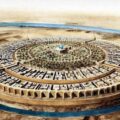From its captivating tourist attractions, such as the Palace of the Emir of Kano and Yankari Games Reserve, to the deep-rooted traditions and customs, Northern Nigeria offers a fascinating blend of history, spirituality, and hospitality.
Uncover the lesser-known aspects of this region, including the prevalence of diverse languages, the significance of consanguine marriage, and the historical commercial prowess dating back to the 15th century.
Delve into the addictive nature of BBC Hausa, the spiritual mysteries surrounding community gates, and the administrative structure of ancient cities.
1. Rich Tourist Attractions: Northern Nigeria boasts wonderful tourist attractions such as the Palace of the Emir of Kano, Kajuru Castle, Chappal Waddi in Taraba, and Yankari Games Reserve.
2. Information Literacy: Northern Nigerian men are often seen with transistor radios, staying updated with the latest news developments.
3. Hardworking Nature: Many Hausa men in Northern Nigeria are willing to engage in various legal jobs to make a living, including cobbling, owning small kiosks, and offering services as security guards.
4. Not Affiliated with Boko Haram: Despite misconceptions, many Hausas in Northern Nigeria have no connection to the militant organization Boko Haram.
5. Hospitality: Northerners are known for their natural hospitality and friendliness, welcoming others with open arms.
6. Diverse Languages: Northern Nigeria is home to various languages, including Hausa, Fulani, Kanuri, Nupe, Jukun, Margi, and Gwari.
7. BBC Hausa Addiction: Many Northerners are addicted to BBC Hausa and rely on it as a primary source of information.
8. Consanguine Marriage: Unlike in the Southern part of Nigeria, consanguine marriage, known as Auren Dangi, is practiced and encouraged in Northern Nigeria.
9. Mystery of Kofa: Each community in Northern Nigeria has gates (kofa) with spiritual significance, believed to have custodial spirits guiding them.
10. Historical Commercial Hub: Northern Nigeria has been a commercial hub since the 15th century, with well-established trade routes and administrative structures.
11. Administrative Structure: In the 15th century, cities in Northern Nigeria had commissioners or ministers overseeing various aspects of governance, such as agriculture, blacksmithing, defense, and hunting.
12. Hausas as a Community: The Hausas in Northern Nigeria are not a tribal group but a community of people with different ethnic backgrounds who speak a common language and practice the same religion.
13. Borno’s Historical Significance: Borno was once a powerful Islamic state, commanding the entire Northern Nigeria by the 15th century.
14. Cultural Festivities: Unlike some other ethnic groups in Nigeria, the Hausas do not have cultural festivals or carnivals but celebrate religious festivals like Small and Big Salah.
15. Spiritual Significance of Kofas: The gates (kofas) in Northern Nigeria are believed to have spiritual guardians that can influence one’s prosperity and luck in life.
16. Early Islamic Influence: Northern Nigeria’s proximity to Islamic countries like Chad and Niger, as well as the trans-Saharan trade, contributed to the region’s predominantly Muslim population.
17. Trade Routes: As early as the 15th century, Northern Nigeria had established trade routes connecting North Africa to the forest region of Borno, western Sudan, and the Volta basin.
18. Administrative Titles: Historical administrative titles in Northern Nigeria included Sarkin Noma (Commissioner of Agriculture), Sarkin Makera (Blacksmith), Sarkin Yaki (Minister of Defense), and Sarkin Farauta (Hunters’ Leader).
19. Non-Tribal Identity: Unlike some other ethnic groups in Nigeria, the Hausas in Northern Nigeria do not have specific cultural festivities or annual celebrations apart from religious festivals.
20. Diverse Cultural Heritage: Northern Nigeria is home to diverse cultural practices, languages, and historical legacies, making it a region of rich cultural significance within Nigeria.








